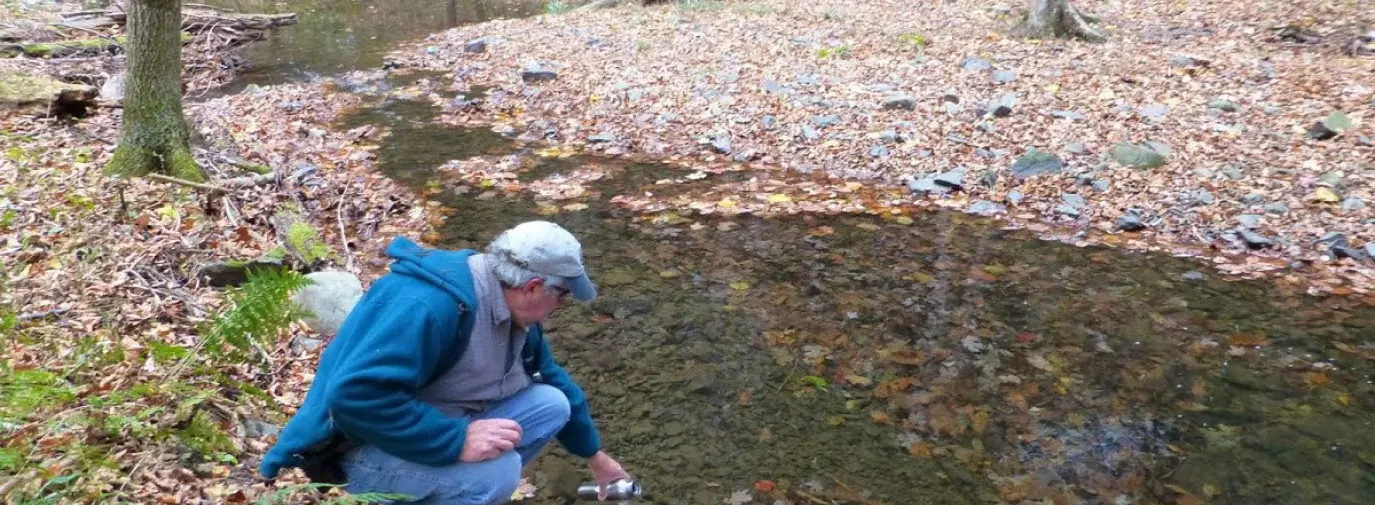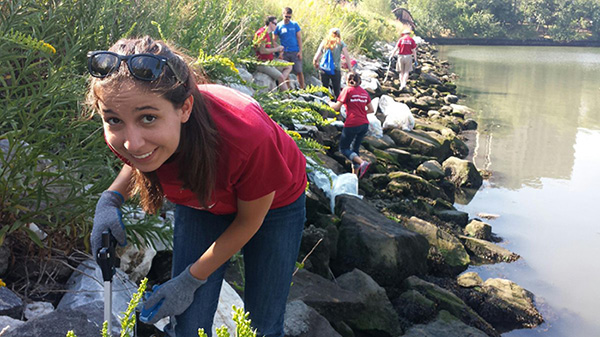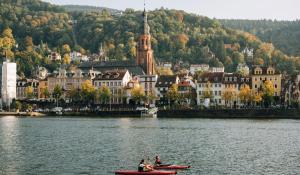
The Delaware River isn’t the most glamorous river. There aren’t songs written about it, like the Shenandoah or the Mississippi. It’s named for one of the smallest and least populous states. Yet, the watershed provides drinking water to 13-19 million people every day and is fed by water in New York, New Jersey, Pennsylvania, and Delaware. In fact, the watershed is more than five times bigger than the state it is named for, at about 14,000 square miles.
As Tracy Carluccio puts it, the river does a lot of hard work. It keeps Carluccio busy, too, as the deputy director of the Delaware Riverkeeper Network (DRN), a nonprofit that organizes local citizens to monitor the river’s water quality, fights polluters in court, and works with legislators to make laws that are good for the river. Riverkeeper ably demonstrates that communities have an important role to play in protecting their own water sources.
When Storytelling Leads to Change
DRN stewards the Delaware River watershed through the help of lots of community volunteers. The organization runs a hotline, which locals use to report pollution incidents, threats like construction, or other water-related concerns.
Once they call in to the hotline, many people embrace the chance to find out how healthy the water is firsthand. Staff members organize groups of community volunteers to test the water all along the river and along hundreds of miles of tributaries for contamination. They also train locals to be active witnesses to would-be polluters, keeping an eye on factories or construction projects near the river, for example.
In addition, DRN volunteers are part of tracking the health of the river in other ways. One project monitors horseshoe crab spawning on a New Jersey beach, while another monitors salt runoff of roads in the winter. Others test known healthy sources that are threatened with new development—such as a factory slated to be built near a creek—so DRN’s lawyers can more easily make the case for protecting them. The network also works with dozens of smaller watershed groups to help them collect data and achieve their goals.
If the data they collect indicates a portion of the river is in trouble, DRN takes action, working with scientists to identify important trends, with attorneys to sue polluters, and with community members to pressure legislators to create laws and allocate funds to clean and protect waterways.

Delaware Riverkeeper volunteers help clean up the banks of the river. Courtesy of the Delaware Riverkeeper Network
Volunteers also take part in plantings to rebuild polluted or eroded riverbanks in the watershed. There’s a lot of work to do, and fortunately, many people to do it—Carluccio estimates DRN has worked with 500 volunteers in the past five years, with about 200 active today.
“Once people understand the connection between them and their watershed, the Delaware River, and how they might be affected by something, they’re going to get engaged,” she says.
Carluccio has noticed an increase in interest in clean drinking water since the election of President Trump, as many fear he could dismantle federal protections on clean water. Under Scott Pruitt, the EPA has already taken aim at a 2015 amendment to 1972’s Clean Water Act, which expanded the Act’s scope to also protect small creeks and streams.
DRN claims 70 victories in battles to protect the watershed, which include: preventing the US Army from dumping 1,200 tons of VX nerve-agent waste in the river, stopping the construction of a hazardous waste incinerator less than a mile from the river’s edge in New Jersey, and securing a moratorium that has prevented drilling and fracking for shale gas in the Delaware River watershed since 2010.
People Power Against FERC
Carluccio says that when DRN is engaged in communities, stories just come out of the woodwork. Volunteers often talk to Riverkeeper staff about the different environmental issues they are facing in their community.
That’s how Maya K. van Rossum, the director of DRN, started to get tuned in to the problems of pipelines in 2010, as the issue became prevalent in Pennsylvania during the state’s fracking boom. People were showing up to DRN events and calling the hotline to talk about how pipelines carrying fracked gas posed a threat to their drinking water and land.
There is a moratorium on fracking in the Delaware River basin, but as natural gas fracking expands in Pennsylvania, the stakes are rising to protect water downstream.
As Pennsylvanians started to fight against pipelines, van Rossum joined a coalition of over 200 organizations—including Green America—fighting pipelines around the country.
The coalition purposefully has no name, says van Rossum, because on petitions and other documents, it’s more powerful to list out every group that’s involved. In 2017, DRN compiled a 455-page dossier on behalf of coalition members slamming FERC, the federal agency that permits interstate pipelines, for irresponsible pipeline permitting. The group has participated in coalition lobby days on Capitol Hill, in a public hearing on FERC’s abuses, and in organizing people to sign onto letters urging legislators to hold FERC accountable for its actions.
Because of advocacy by DRN and the anti-pipelines coalition,federal regulators are exercising jurisdiction over the PennEast pipeline project and conducting their reviews independent from FERC.
In all of DRN’s work, van Rossum stresses the importance of “people-power,” the impact a large group of people can have when they lend their voices to a cause that’s important to them. Even if your community isn’t being affected by pipelines or polluted water, she says, you can still make a difference.
“Every time everybody has added their voice, they have helped [create] a movement that can no longer be ignored by the Senate or by Congress. We will win. But we need every voice to get there,” she says.
Take Action
Learn more about the anti-pipeline coalition at StopThePipelines.org.
There are over 300 Riverkeeper, Bayoukeeper, Baykeeper, Creekkeeper, and Waterkeeper organizations around the world, organized under one umbrella as the Waterkeeper Alliance. (Though they operate similarly, the DRN is not affiliated with the Alliance.) Together, the groups patrol and protect more than 2.5 million square miles of rivers, lakes, and coastal waterways on six continents. To find a local Waterkeeper group or start one in your area, contact the Alliance at 212/747-0622 or info@waterkeeper.org, or search their database.







